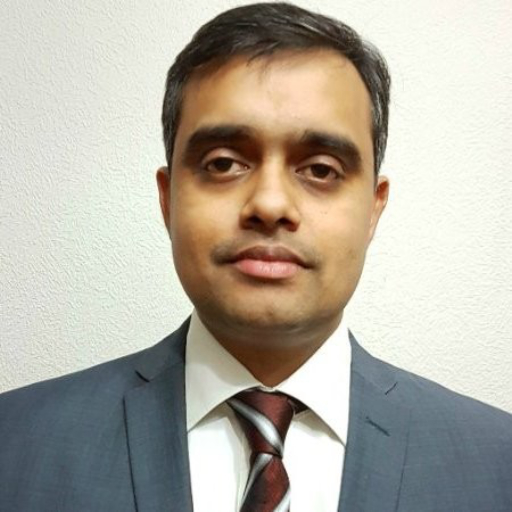(Room: Auditorium) SDV-enabled Use Cases: From vehicle experience, in-cabin monitoring and mixed reality to energy mgmt. & charging
Shifting from a gas station mindset into a connected EV charging world: Why common vehicle data models matter (Matus Banyay, Ford)
A revolution has begun - it is no matter a question if EVs are coming but rather how the industry will make it happen. While we are seeing massive investments in infrastructure, public as well as private, a war of plugs and evolving standard in the EV domain, we also observe a gas station mindset in the broad mass of adopters and stakeholders. Is the key to charging anxiety more chargers only or can there be a better, smarter way that leverages the software defined vehicle as well as open vehicle data models on a larger scale.
______________________________________________________________________________
SDV & Vehicle Motion Management (Dirk Bangel, Bosch)
The presentation will show how software-defined vehicle motion management is transforming the automotive solution space through software modularization, centralized computing, standardized interfaces, multi-actuator control and hardware system independence.
______________________________________________________________________________
A digitalfirst approach use case for SDV: EV power optimization to reduce range anxiety (Pradeep Kumar Kondabattini, Hyundai Mobis; Ulrich Postl, Ansys; Gopinath Penamalli, Ansys)
The "software-defined vehicle" concept became increasingly prevalent in the automotive industry, aligning with key megatrends such as Electrification, ADAS and connected vehicles. However, the technical complexity involved in implementing SdV is formidable, with vehicles containing several hundred million lines of code and the number of ECUs projected to reduce to single digit. Addressing these challenges requires collective efforts from industry players to accelerate the SdV transformation.
To realize the SDV philosophy, Industry collaboration, Standardization & Virtualization are very important. Collaboration within the automotive ecosystem will promote collective contribution and accelerate towards SdV. Establishing standardized practices, such as the COVESA Vehicle signal standards (VSS), ensures compatibility and interoperability by hardware abstraction. Virtualization of hardware via simulation will enable the software to define hardware specifications suitable for SdV upfront.
The same is demonstrated with “EV power optimization” use case incepted from Mobis, focusing on optimizing electric vehicle power consumption to reduce range anxiety while maintaining drive comfort. The use case is executed on an AIOT platform Digital.auto with faster than real-time virtualization using the Ansys Digital Twin model, which simulates power-consuming systems in EVs (Battery, eMotor, HVAC, IVI, Lighting, etc.). It facilitates the selection of optimal power optimization policies during the drive, minimizing customer discomfort and ensuring a smooth journey to the last mile.
Furthermore, this platform helps to digitally validate the EV power optimization Software algorithms or vast amounts of continuously developed software for SdVs by enabling vehicle Digital Twins. Hence Digital first approach ensuring adherence to stringent quality and robustness of automotive industry.
______________________________________________________________________________
Digital Twin value for Software Defined Vehicles (Dan Isaac, Digital Twin Consortium)
More information will follow soon.
Matus is an engineering manager with more than 10+ years of product development experience. He has delivered and led a multitude of cross functional engineering challenges with a proven leadership track record in complex technology environments. Having spent several years in research prior moving into the industry, he gathered broad experiences through engaging in many fast paced operational projects across different industries (medical tech, semiconductor, automotive). He currently leads several DevOps team at Ford of Europe that develop, deploy and operate global EV cloud services which are powering Ford's charging experience.
Being a servant leader he is promoting an agile mindset and practices, driving a collaborative cross-functional team culture and leveraging design thinking that always puts the customer first.
Dirk Bangel is Chief Expert in the Technical Strategy Team of the Robert Bosch GmbH Mobility Company and responsible for the BBM Technology Management. He holds a degree in Computer Science from the Technical University of Cologne and has been with Robert Bosch for the last 7 years in various locations and positions. Dirk has published two books, Data Science in a Nutshell and Myth in AI.
I have been leading and implementing R&D Strategy for Mobis India Limited one of the leading Korean Automotive supplier. Playing a critical role in the India strategy and growth while collaborating with Managing Director and organizational leadership.
As more and more software being making in roads to Automotive it has become imperative for organizations to not only carefully devise the software, digitalization and innovation strategies but also need to collaborate with other organizations.
Vehicles are becoming more software oriented and OEs are finding new business strategies for growth, in this complex scenario Automotive suppliers and Technology companies have a crucial role to play.
I have been working towards this journey in defining India center Strategy, through various activities viz, Center of excellency for Software development, Expansion of scope, Localization, Advanced technology development etc.,
Experienced in Engineering Procurement management, identifying the requirements, shortlisting vendors, implementing required Agreements MSA,SOW, NDA etc, and monitoring invoicing and payment
My experience of changing the software development process from regular waterfall to Agile while implementing required huge organization transformation through meticulously planned change management
Experienced in Business development, Project Management and System Engineering with respect Automotive embedded software development for various OE projects utilizing resources spread across locations in Europe and India.
I have been a member of Telangana state government committee to define and implement Automotive growth strategy which was launched in 2023 as ‘Telangana Mobility Valley’ which is playing a vital role in drawing more investments into the state.
I am driving several initiative not limited crucial activities like SDV, Innovation.
Dan Isaacs is General Manager and the Chief Technology Officer of Digital Twin Consortium, where he is responsible for setting the technical direction for the Member Consortium, liaison partnerships and business development support for new memberships.
Previously, Dan was Director of Strategic Marketing and Business Development at Xilinx where he was responsible for emerging technologies including AI/Machine Learning, including defining and executing the ecosystem strategy for the Industrial IoT. Prior to joining the Digital Twin Consortium, Dan was responsible for Automotive Business Development focused on Automated Driving and ADAS systems.
Dan represented Xilinx to the Industrial Internet Consortium (IIC) for six years where he was involved in the establishment and development of multiple proof of concept testbeds. He has over 25 years of experience working in Automotive, Aerospace, Semiconductor and consumer-based companies including Ford, NEC, LSI Logic and Hughes Aircraft.
An accomplished speaker, Dan has delivered keynotes, presentations and served as panellist and moderator for IIC World Forums, Industrial IOT Global conferences, Embedded World, Embedded Systems, and FPGA Conferences. He is a member of international advisory boards and holds degrees in Computer Engineering: EE from Cal State University, B.S. Geophysics from ASU.
Vortrag Teilen






